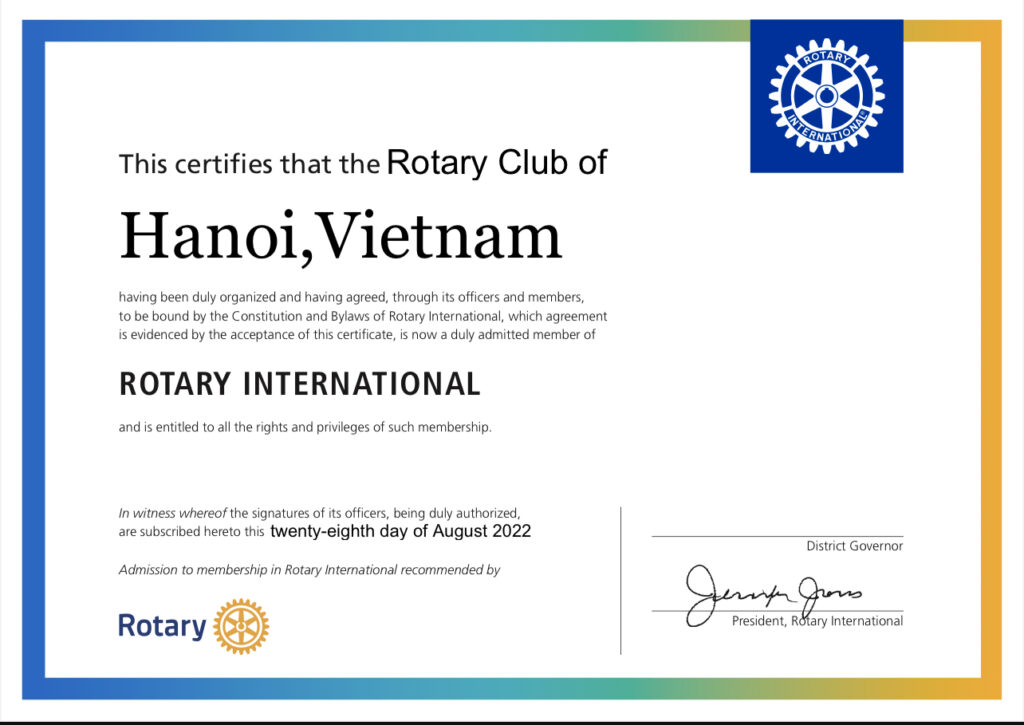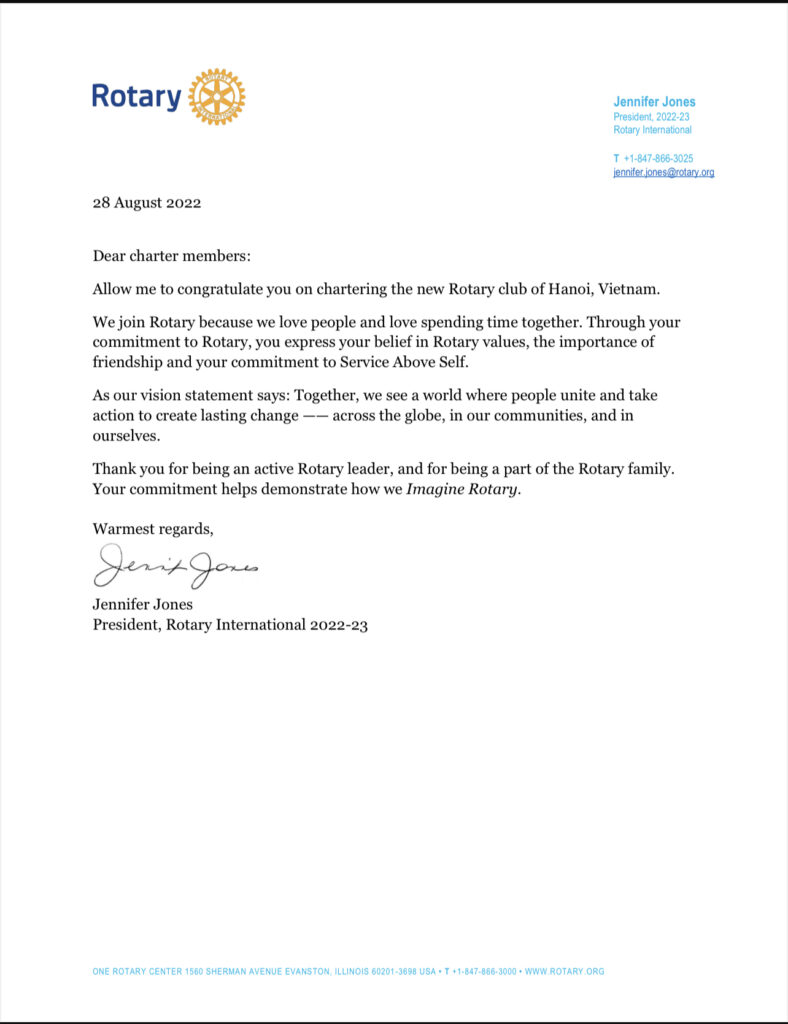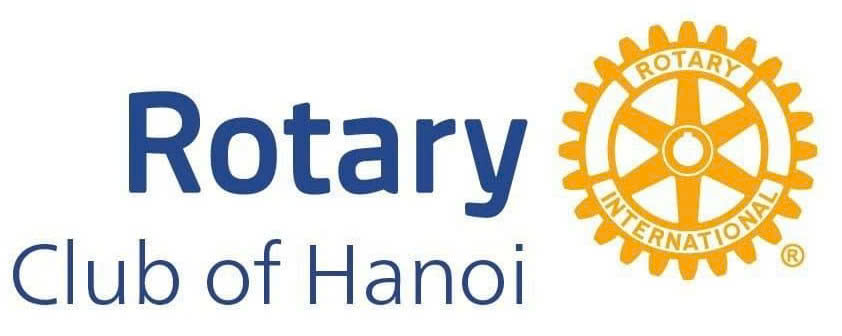About Us
How Rotary Clubs in Vietnam were formed?
After a break of more than 46 years, the first two Rotary Clubs in Vietnam were chartered – with the active participation of RC Tutzing.
After the end of the war in 1975, there were numerous attempts to found a new one, for example from Australia, the USA and also from the responsible District 3350 in Bangkok. The efforts regularly failed due to the different ideas of the Vietnamese government and Rotary International: The legal situation in Vietnam’s communist system provides for a direct obligation to inform state authorities and authority to issue instructions to NGOs and local service organizations. Rotary International, on the other hand, would like to remain apolitical and see its own statutes and decision-making sovereignty realized.
In the summer of 2020, three Germans started an attempt to unite these different positions: Anh Vu Minh, who came to Germany as a child with the Cap Anamur, studied political science here and now runs an established travel agency for European corporate and government delegations in Vietnam; Christian Brendel, a successful corporate lawyer with offices in Saigon, Nha Trang and Hanoi, and Wolfgang Czizegg, member of RC Tutzing.
As an expert in corporate law, Christian Brendel found a way out in Vietnamese legislation. Instead of an association or a non-governmental organization (NGO), Rotary should register a “social enterprise”, i.e. a non-profit company. In contrast to NGOs or associations, a “social enterprise” does not have to report to the ministries, but only to the tax office. The management of the company is free in its decisions, the Rotarian rules and values can be fully implemented internally. Donations and membership fees are not taxed, can be used for a specific purpose, and transfers of fees to District 3350 in Thailand are also permitted.
With the green light from Evanston for this construction, the circle of comrades-in-arms expanded enormously. In addition to the recently incumbent RI President Holger Knaack and his crew, the responsible District 3350 with PDG Jason Lim and other activists from the last few years came on board. The concept was put to the test again, initially viewed very critically and ultimately judged to be promising by all those involved.
Until mid-June, the application documents were worked on in Saigon almost day and night, negotiated with the authorities and discussed internally. A total of more than 100 signatures were required from the founding members who had been recruited in the meantime – not even counting the formalities within Rotary International for the charter
As the Rotary year drew to a close, two clubs were simultaneously chartered in Saigon: an all-Vietnamese Rotary club (RC Saigon) and an international Rotary club (RC Saigon International). The members celebrated the first official meeting together with their guests from Thailand, USA, India, Germany, Switzerland, Brazil and Italy only virtually via screen; the joy was still great.
As sponsor clubs, the RC Bangkok Bangna and the RC Tutzing have agreed to support the members of the young clubs in word and deed as they set up their organisation. And this support is also gratefully accepted, as current communication in Icebreaker sessions, group chats or committee meetings shows.
According to the age structure of Vietnam, the youngest member of RC Saigon International is just 27 years old (Vietnamese), the oldest 63 years old (Austrian), the average age is 39 years. All members are very well educated – often with studies abroad -, are well-connected entrepreneurs with start-ups, company managers or hold other managerial positions. A remarkable mix of people with experience and a unique spirit.
All of this was possible because many Rotarians around the world worked closely together towards the same goal without cultural or hierarchical barriers. A historic project that the two clubs, Tutzing and Bangkok Bangna, will continue to support in the future.


